Learning the Code Through Categories
Submitted by Karen Carl on Nov 25, 2015
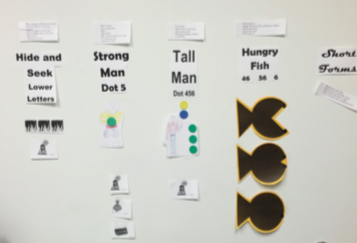
Just how many programs are there to teach the braille code? How many teach reading?How long does it take to get through?How long does it take to learn the whole code?Why wait so long?
The ABC Braille Study found that "Students who learned more contractions earlier in instruction had higher scores in the areas of vocabulary, decoding, and comprehension than those who started with uncontracted braille and learned contractions more slowly. "
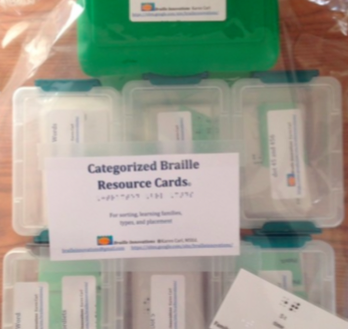 Categorized Braille Teaching
Categorized Braille Teaching
I've used a great majority of the programs available to teach braille, but it's hard to find one that fits each student's needs. When I finally settle on one, it's usually frustrating how slowly the braille contractions are introduced. Or, they assume just because you used to read in print, you can read complex material once you figure out the letters. Whoa. No way. The late-learners are overwhelmed. The early learners... you really want them to wait until 3rd-5th grade to learn all the contractions???? Really? Or they get stuck. And there's only one worksheet or story to work on that discrimination development. Huh? Now what?
Here's What I Do...
- Pick a program that is going to present the overall skills that will be primary towards their need: lots of simple practice, learning to read as well as learn the code, learn braille as a second media, etc.
- Then, off we go. I don't wait. Letters. Letter words. High frequency words (the, of, where, etc.). After that...
-
Categories! Easy- Strong Wordsigns and other Wordsigns are "Stand Alones"
- Dot 5
- Dot 4,5 and 4,5,6
- Short Forms
- Dot 4,6 and 5,6
- Once you get towards the end, sort, re-sort, and sort again.
For example:
It uses an "e" shape: enough, en, every, ever, -ance, -ence ... etc.
Families within short forms: -ceives (conceive, deceive, perceive, receive) and their -ing relatives (conceiving, deceiving, perceiving, receiving)
Take each category on it's own and practice reading in isolation, in literature, and writing in isolation and sentences.
Monitor their progress: understand in their mind, ability to read, and ability to write. And celebrate their progress have them put up a memento of their progress to display
How?
- For extra practice: Beginning Braille from Exceptional Teaching Inc.
- To help with category instruction ideas: Bee Bop Braille from Braille Innovations
- To be able to have cards with easy access to categorization, sturdy, and usable indefinitely, Categorized Braille Cards from Braille Innovation
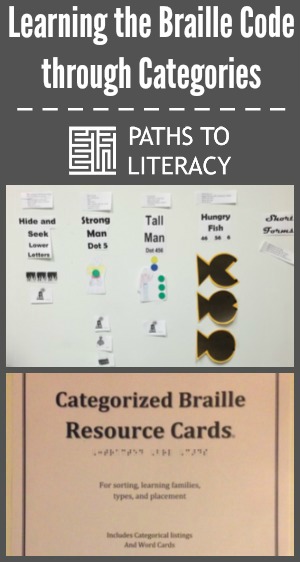

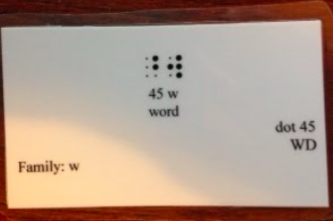
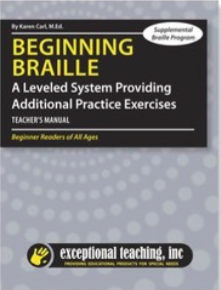
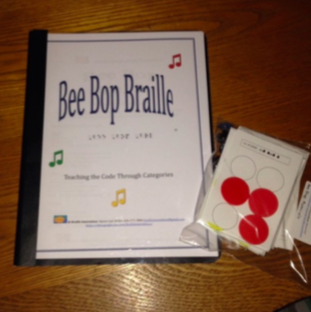

Comments
Learning the Braille code through categories